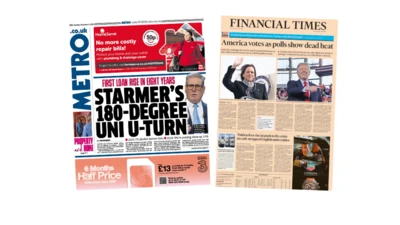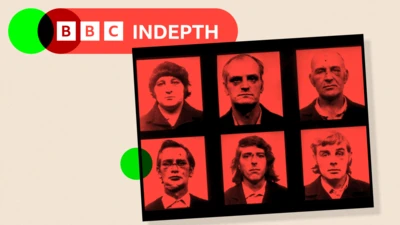We've updated our Privacy and Cookies Policy
We've made some important changes to our Privacy and Cookies Policy and we want you to know what this means for you and your data.
How the SNP hope to avoid taking an indyref2 pounding
Image source, PA
- Author, Sarah Smith
- Role, Scotland editor
The SNP know that one of the reasons they failed to win the 2014 Scottish referendum was because they failed to convince voters of the economic case for independence.
So it was the job of the Scottish Growth Commission to rewrite the economic prospectus for independence and try to make it more convincing - more politically bullet-proof.
One of their arguments that was shot down during the last referendum was their proposal that an independent Scotland would "retain sterling as part of a formal monetary union with the rest of the UK".
"People need to know that is not going to happen", fired back then-Chancellor George Osborne when he announced that the UK government was not prepared to share the pound.
Obviously a new proposition is needed before the SNP ask Scots to once again vote on independence.
Their Growth Commission is not suggesting that the solution is to set up a new Scottish currency - not immediately at least. They say there would be an extended transition period during which an independent Scotland would continue to use the pound.
'No formal pact'
How does this get around the fact that if there was to be another referendum, the UK government would almost certainly rule out, once again, a currency union?
Because they are no longer proposing a formal pact.
They UK government cannot stop Scotland simply using the pound. But under those circumstances, Scotland would have to accept monetary policy and interest rates set by the Bank of England without any concern for the economic circumstances in Scotland.
That doesn't sound like true "independence", will come the cry - both from those who oppose independence and from some die-hard supporters who would like to see Scotland go the whole hog and create its own currency as symbol of its new-found sovereignty.
But the SNP think that's a price worth paying to answer one of the trickiest questions they faced repeatedly in 2014.
The Growth Commission does hold out the prospect of a new Scottish currency - eventually. But not for at least a decade and not until six strict economic tests are met to make sure that currency would be credible and sustainable.
That is meant to reassure Scottish voters by offering certainty about what would happen to their pensions and their mortgages (all currently paid in pounds sterling) after independence. But if they know that the money they use could change denomination at some unspecified point in the future, is that really the certainty that people who voted "no" the last time are looking for?
Top Stories
More to explore
Most read
Content is not available








